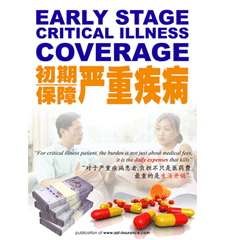Nearly 60% of people don't have a life insurance policy and 64% have a mortgage which they haven't fully paid off, potentially jeopardising their families' financial futures. Despite the potential advantages of life insurance being all too clear, many people still don't have this protection.


Most people (60%) don't have life insurance to protect their family financially if they pass away, even though nearly two-thirds (64%) still have a mortgage - which means they would leave their loved ones with a hefty bill if they passed away.
However, one in three (34%) are prepared for any eventuality and admit they are worth more dead than alive due to the size of the life insurance policies.
According to the Association of British Insurers (ABI), insurers in the UK pay out on average £37 million every day to help people cope with the financial burdens that come following a death in the family.
Yet the research found that the loved ones of more than one in ten (11%) of those polled would be homeless if they died. Insurers are concerned that many people are not sufficiently covering their families for such eventualities.
And with (30%) of couples having a joint mortgage and more than half (57%) holding a joint bank account, many would struggle with bills if one party dropped out and this could also mean they'd have to take on joint debt on their own without life insurance.
The loss of a loved one is a stressful time without having to worry about not being able to afford the mortgage bills. A debt such as a mortgage should ideally be backed up with life insurance so that it can be paid off in part or in full if one of the mortgage holders should die.
Term insurance, the most common type of life insurance, is what is usually used for mortgage protection. It will pay a tax-free lump sum if you die within a specified period of time, for example 25 years.
The aim is for the lump sum to be used to clear any outstanding debt against the property, which will ensure loved ones are not left without a roof on their head or with hefty bills they cannot service if you die.
However, one in three (34%) are prepared for any eventuality and admit they are worth more dead than alive due to the size of the life insurance policies.
According to the Association of British Insurers (ABI), insurers in the UK pay out on average £37 million every day to help people cope with the financial burdens that come following a death in the family.
Yet the research found that the loved ones of more than one in ten (11%) of those polled would be homeless if they died. Insurers are concerned that many people are not sufficiently covering their families for such eventualities.
And with (30%) of couples having a joint mortgage and more than half (57%) holding a joint bank account, many would struggle with bills if one party dropped out and this could also mean they'd have to take on joint debt on their own without life insurance.
The loss of a loved one is a stressful time without having to worry about not being able to afford the mortgage bills. A debt such as a mortgage should ideally be backed up with life insurance so that it can be paid off in part or in full if one of the mortgage holders should die.
Term insurance, the most common type of life insurance, is what is usually used for mortgage protection. It will pay a tax-free lump sum if you die within a specified period of time, for example 25 years.
The aim is for the lump sum to be used to clear any outstanding debt against the property, which will ensure loved ones are not left without a roof on their head or with hefty bills they cannot service if you die.
Source: http://askpakdeh.blogspot.com/
















